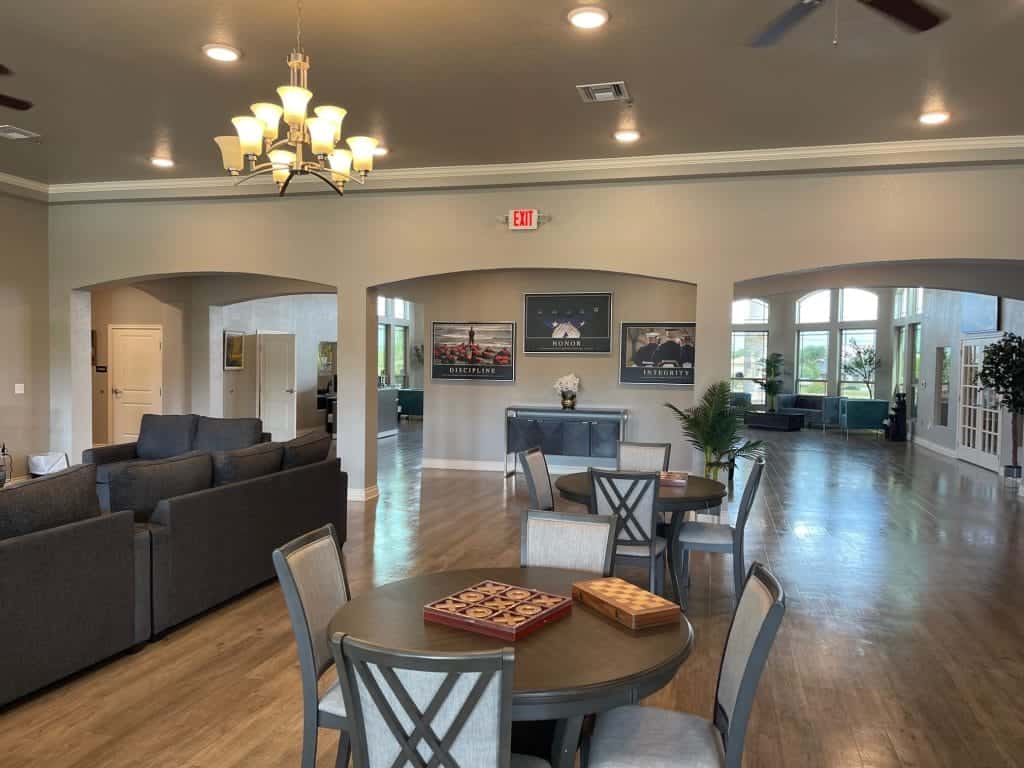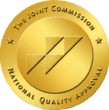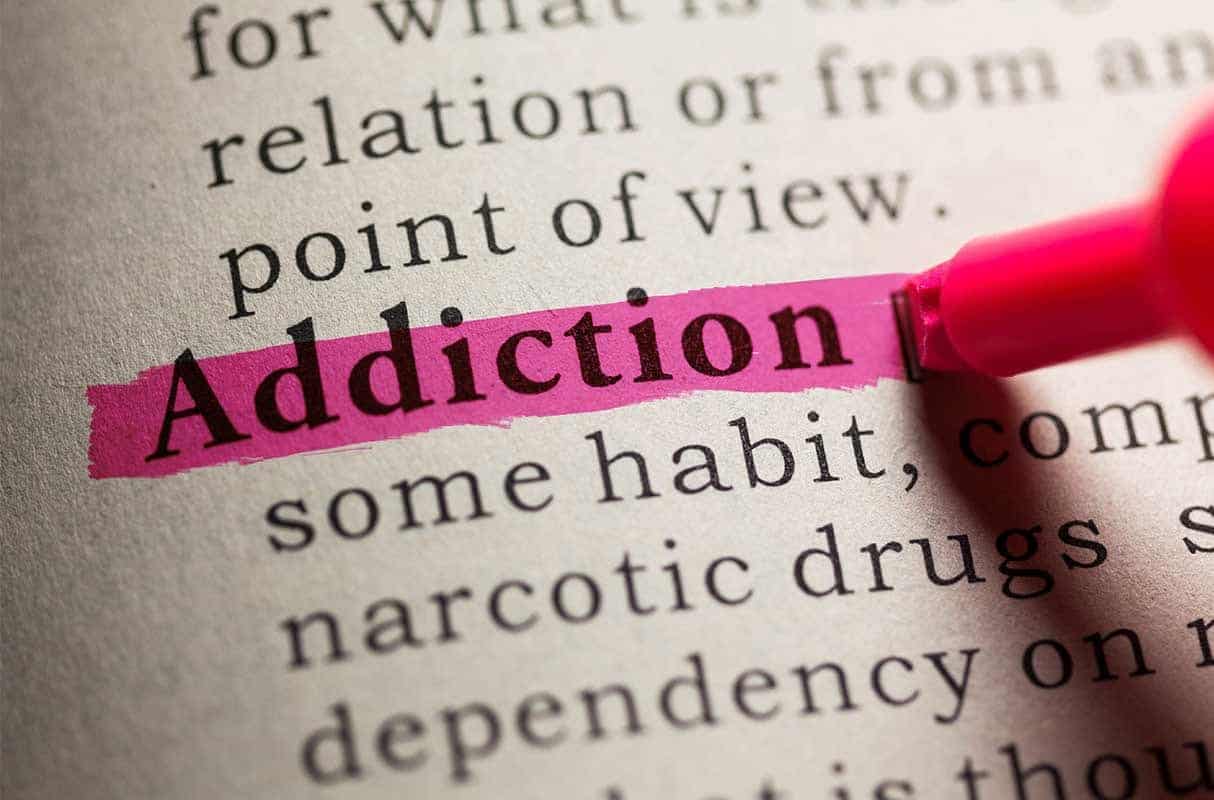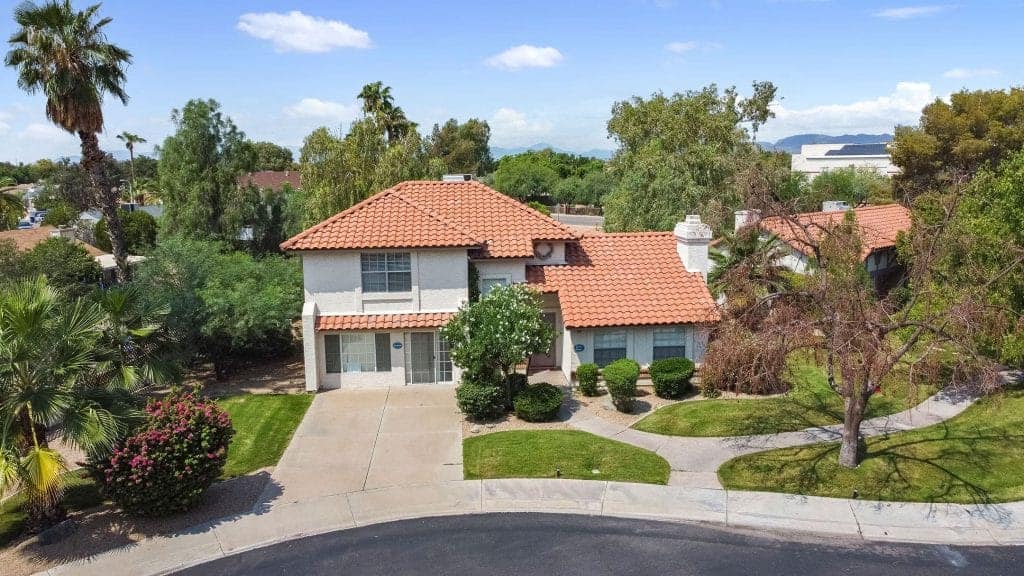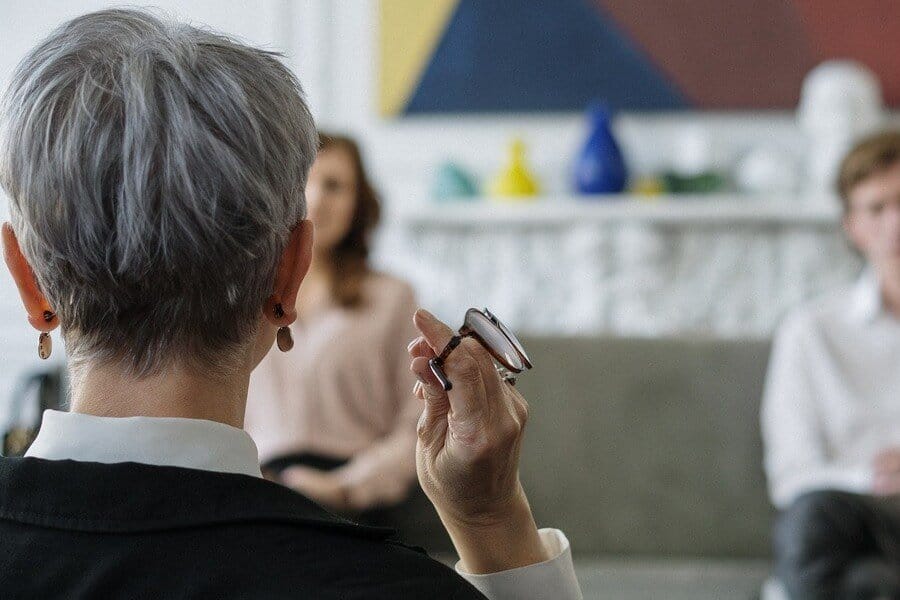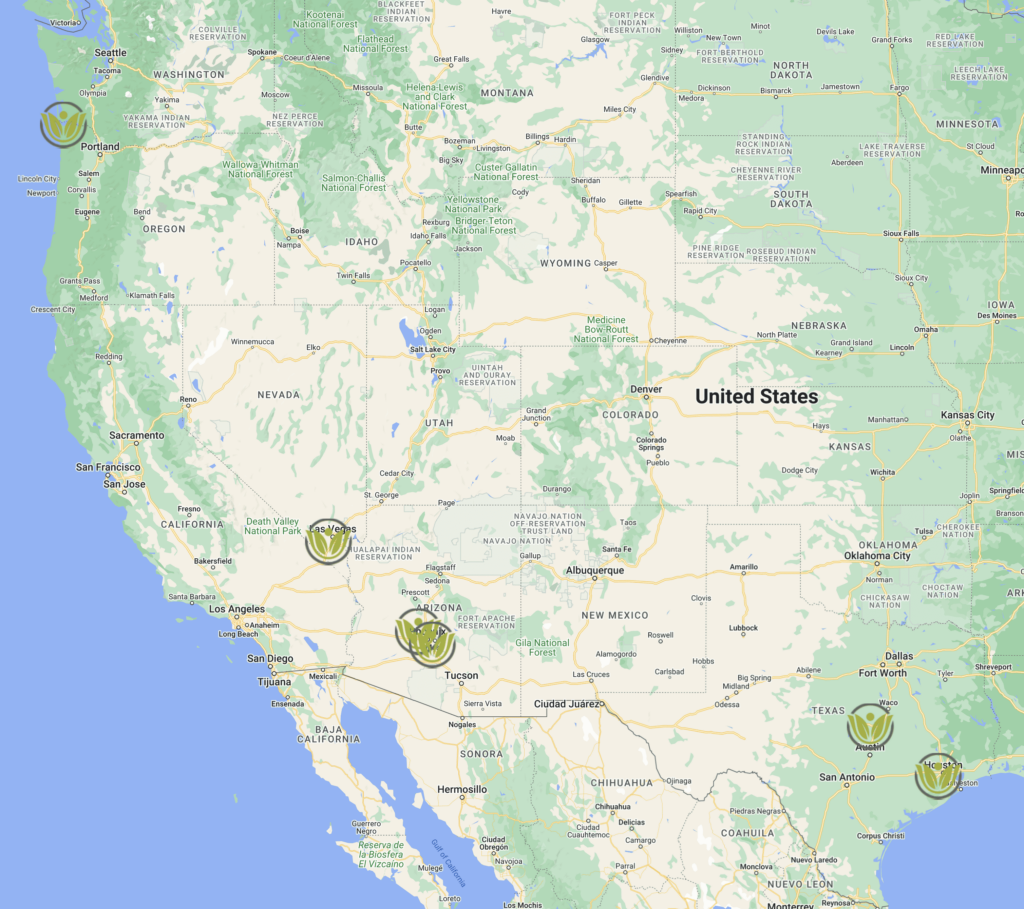The addiction aftercare process provides ongoing support and guidance, assisting you with staying on track with your treatment goals and maintaining long-term sobriety. The specifics of an aftercare plan for substance abuse vary depending on your personalized aftercare needs and preferences. Still, the overall goal is to provide a comprehensive approach to recovery that addresses all aspects of your life.
Below is a general outline of what you can expect from an addiction aftercare program:
- Pre-discharge planning: A pre-discharge plan is created to identify your aftercare requirements and objectives before completing a primary treatment program. This plan may consist of directing you to community resources and support groups and providing recommendations for ongoing treatment.
- Ongoing counseling and therapy: Once a treatment program is completed, many people opt for continuing counseling and therapy on an outpatient basis. Depending on your specific needs and preferences, this may include individual, group, or family therapy.
- Support groups: Participating in peer support groups like Alcoholics Anonymous (AA) or Narcotics Anonymous (NA) can provide you with valuable ongoing support and accountability. These groups are often incorporated into aftercare plans, and many attend them regularly.
- Education and Skill Building: Aftercare programs may provide educational sessions covering topics like stress management, coping skills, relapse prevention, nutrition, and exercise. These sessions aim to equip you with the skills and knowledge necessary for sustaining sobriety.
- Medication management: Aftercare planning may include administering medication to treat cravings or other signs of addiction or mental illness. It's critical to make sure you are taking your medications as directed and that any adverse effects or interactions are being watched for.
- Lifestyle changes: To ensure proper aftercare, it's crucial to implement lifestyle changes like steering clear of triggers, cultivating healthy habits, and establishing a support system. This may entail collaborating with a case manager or counselor to pinpoint areas where modifications can be implemented and devising a plan to execute those changes.
- Ongoing monitoring and relapse prevention: During the aftercare process, your progress is closely observed to ensure you meet your recovery goals. You’ll also work on creating and practicing strategies to prevent relapse, such as recognizing signs of a potential relapse, learning coping mechanisms, and having a plan in case a relapse does occur.
- Family Support: Family counseling and support can be crucial to recovery. Programs may provide family education and assistance to assist relatives in understanding addiction and learning how to aid in the recovery process.
How Much Does a Couples Rehab Treatment Program Cost?
The cost of a couples rehab treatment program can vary widely depending on several factors, including the location, program duration, level of care, amenities provided, and the specific treatment center. Couples rehab programs are typically more expensive than individual rehab programs due to the additional services and resources to support the couple's recovery journey together.
Expenses typically cover accommodation, meals, therapy sessions, medical supervision, and other program components.
Insurance coverage can significantly impact out-of-pocket costs. Additionally, remember that some treatment centers offer financing options, sliding scale fees, or scholarships to help individuals and couples access treatment, particularly if cost is a significant barrier.
To get a more accurate idea of the cost of a couples rehab treatment program, call 866-461-3339. We can provide detailed information about program costs, payment options, insurance coverage, and more.
Remember that the value of investing in comprehensive and effective treatment for you, your partner, and the relationship when evaluating the cost of a couples rehab program is priceless.
How to Find a Couples Drug and Alcohol Rehab Center Near Me
Virtue Recovery Center has saved individuals from addiction and substance abuse for years with accredited treatment facilities in multiple states. Our centers and expert staff can provide the compassion and care you and your partner deserve. Call 866-461-3339 for a remote drug and alcohol assessment today, or visit one of our brick-and-mortar locations below:
- Chandler, Arizona: 111 S Hearthstone Way, Chandler, AZ 85226, United States
- Sun City West, Arizona: 13951 W Meeker Blvd, Sun City West, AZ 85375, United States
- Houston, Texas: 9714 S Gessner Rd, Houston, TX 77071, United States
- Killeen, Texas: 5200 S W S Young Dr, Killeen, TX 76542, United States
- Las Vegas, Nevada: 8225 W Robindale Rd, Las Vegas, NV 89113
- Astoria, Oregon: 263 W Exchange St, Astoria, OR 97103, United States
Here are a few additional ways to locate nearby programs for couples addiction treatment:
- Search online: Search for close-by couples addiction treatment programs using keywords like " drug rehab for couples near me," "alcohol rehab for couples near me," or “rehab for married couples in my area,” followed by your city and state name.
- Contact your state's health department: To find close by couples therapy programs, check with your state's health department. You can visit their website or the U.S. Department of Health and Human Services website.
- Contact non-profit organizations in your immediate area: Consider contacting localized non-profit organizations specializing in addiction treatment for couples.
- Check with your health insurance provider: Your insurance provider may be able to provide information on couples rehab programs within reach.
- Ask your healthcare provider: Your doctor or another healthcare provider may also have information on conveniently located couples therapy programs.
Couples Rehab Treatment Process and Schedule
The process and schedule of a couples rehab treatment program can vary depending on the treatment center and the specific program chosen. However, they often have structured daily routines that include therapy sessions, group activities, meals, and free time for relaxation and self-reflection.
Below is a general overview of what you might expect from a couples rehab treatment process and schedule. It's important to remember that these details may vary. You can call us at 866-461-3339 for more accurate and detailed information about our couples rehab treatment programs.
- Assessment and intake: The treatment process typically begins with an initial assessment to evaluate the needs and circumstances of you and your partner. This assessment helps the treatment team develop an individualized treatment plan tailored to your and your partner's needs.
- Detoxification (if necessary): If one or both of you require medical detoxification to withdraw from substances safely, this may be the next step in the treatment process. Detoxification is provided under medical supervision.
- Individual and couples therapy: When attending a couples rehab treatment program, you and your partner will likely participate in individual and joint therapy sessions. Therapy methods may include the following:
- Couples therapy: Focuses on relationship dynamics, communication patterns, and addiction issues. It enhances emotional intimacy and trust through approaches like Emotionally-Focused Therapy (EFT) and Cognitive-Behavioral Therapy (CBT).
- Individual therapy: Helps each of you address personal challenges and underlying issues contributing to addiction. It also helps each of you develop coping strategies. Different modalities can be used, such as psychodynamic therapy, CBT, or trauma-informed approaches.
- Group therapy: Led by a qualified therapist, involving multiple individuals or couples dealing with similar circumstances. These sessions can offer a sense of community, encouragement, and the chance to share experiences and insights, helping to enhance social support, reduce isolation, and create a sense of belonging.
- Family therapy: An option to involve more family members or address broader family dynamics affected by addiction. This therapy improves communication, educates about addiction, and heals relationships. In addition, it provides a foundation for ongoing support and understanding.
- Additional therapies: Various evidence-based treatments may address addictive behaviors and support you and your partner in developing healthier habits. Examples include:
- Cognitive-Behavioral Therapy (CBT): Identifies and changes negative thought patterns and behaviors
- Motivational Interviewing (MI): Helps individuals and couples explore motivations for change and increase readiness for recovery
- Emotionally Focused Therapy (EFT): EFT is a therapy for couples that strengthens emotional bonds, improves communication, and promotes a secure attachment by focusing on emotions as the core of relationship issues.
- Acceptance and Commitment Therapy (ACT): Promotes acceptance of complex thoughts and emotions while aligning actions with values. ACT can aid you and your partner in addiction treatment by enhancing support and reducing struggles with cravings.
- Solution-Focused Brief Therapy (SFBT): Helps you and your partner focus on strengths, envision a desired future, and develop practical steps to achieve goals. It emphasizes solutions and can be effective in overcoming obstacles in recovery.
- Medication-Assisted Treatment (MAT): Treatment of opioid and alcohol addiction by combining medicines with behavioral therapy and psychotherapy. The drugs provided work to restore your brain’s chemistry to normal and reduce physical and psychological drug cravings.
- Education and skill-building: Couples rehab programs typically include educational components to help you and your partner understand addiction, its impact on relationships, and strategies for relapse prevention.
- Holistic therapies: Some couples rehab programs offer holistic therapies like art therapy, yoga, and mindfulness exercises to improve health and reduce stress.
- Aftercare planning: At the end of the program, the treatment team will work with you and your partner to plan for aftercare. This may involve connecting you to support groups or therapists to help you continue your progress.
